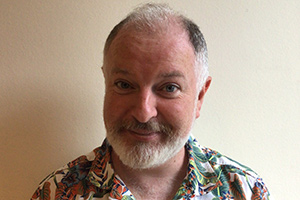Darren Harriott / Sikisa / Nick Doody - Bobby Carroll's Fringe Diary
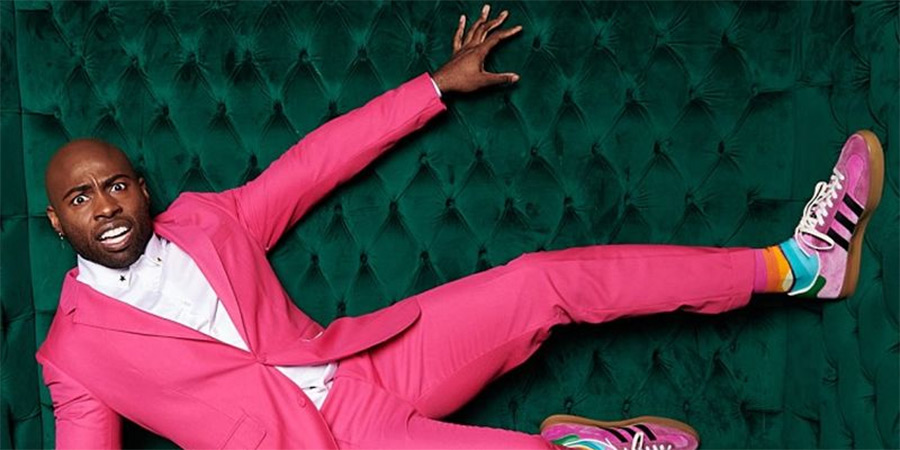
A hot bag of chips from the fish shop on a cold night. A dirty limerick. A frosty one after a hard day's graft. There are certain pure indulgences in life that are unmatchable. Their very simplicity and familiarity bring a smile to the face; reset your weary soul back into the world of the living. And watching an uncontrived comedy all-rounder like Darren Harriott connect with his crowd is another of those unadulterated, innocent highs. Sitting through five or six comedy offerings in a row can dull any human. You can spend certain hours with no laughter left in you, or get so distracted making mental notes you feel separate and withdrawn from the rest of the audience. After 10 minutes in Harriott's company, I popped the invisible notebook away and just enjoyed the ride. His robust stand-up abilities rejuvenated me and let me love comedy at its most unfussy settings again.
Brummie star Harriott works his room with impressive, unforced aplomb. He's as casual and as genuine as a John Bishop or a Danny Bhoy. Easy going and naturally funny tales of self-improvement, tough choices and a bag of animals. The 'Animal Man' section, where Harriott recalls an annual school event where a strange guy would show the entire assembly hall a limited but spectacular menagerie of creatures, is a superior piece of mainstream storytelling in a show full of such sections. He never goes hard on the accelerator; the punches are subtle but never artless. He knows his assured voice gives him the bandwidth to take his time and really set the scene, let the spot-on weirdness of the details season the funny without overpowering the telling.
Harriott kicks off the show by saying how he has found himself on the back foot, that fame has brought him into white, middle class spaces that made him feel like 'the other'. TV quiz shows where there is a cultural disconnect from his black, millennial, Midlands, second generation immigrant, working class roots. The rest of the hour never underlines this subtext, but it often feels organically a piece with that set-up story.
Here he is, the most talented man at the microphone, feeling no need to justify himself at a festival dominated by white middle class voices and ticket buyers, but maybe offering the dominant faces in front of him a glimpse at the internal life of someone who doesn't conform to the easy stereotypes they may desire to box him into. He didn't give into temptation during the 2011 London riots and makes pragmatic decisions during his old day job as the 99p Shop security guard. He talks about his stunted relationship with his roadman father through two expertly pitched memories. While, for some, the excitement will be in hearing the examples of toxic masculinity and criminality that Harriott retells, my take home was what a fantastic job his single mother did raising him. You can see why he is almost there to being a household name and the way he presents himself in Roadman he should be a valued example to all young men. He has grown up with an admirable core and a sense of self that he makes good choices. Maybe not at salsa class but definitely in life, certainly on stage.
Harriott focuses on self-improvement for much of Roadman. He's getting into wine, learning Japanese and, bless him, getting lost on the dance floor of Latin Dance lessons. These routines are a bit more meat-and-potatoes... cheery observational bits by stealth. Though, his assessment of The Ick, and a lovely callback to it at the unlikeliest moment, evidence that he has forgotten none of his circuit taught craft. Harriott's star power and innate chops are indisputable. Maturity has brought him a smoothness that really sets him apart. Roadman is a show that should chime with comedy audiences around the UK and hopefully elevate his name firmly onto the comedy A-list. There are plenty of characters on the Fringe but very few acts with strong character. Let's recognise it, hey?
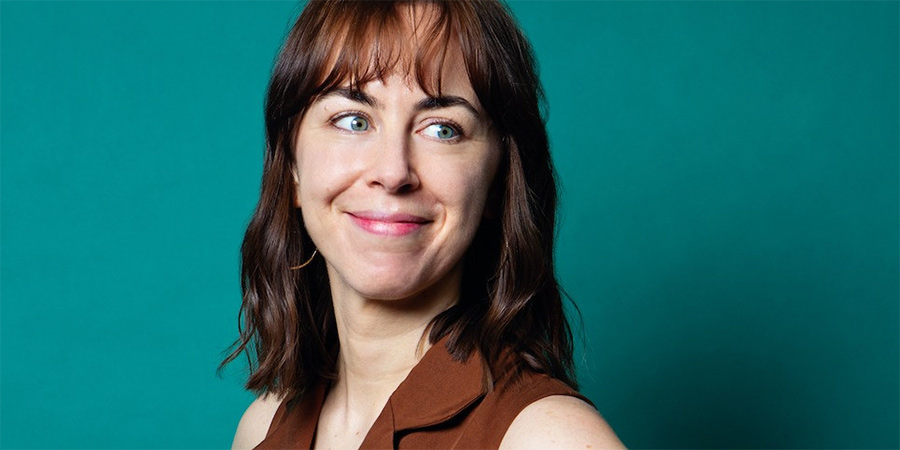
Candace Bryan is a Londoner originally from Memphis, Tennessee, whose single dad tried to raise her communist. Well, daddy needs to take a bow as Bryan has grown into a deadpan comedian with very little indulgent excess on her comedy. The first twenty of this show, Communist Dad, is serviceable stand-up which shows the room that she can do the do and probably would see her placed consistently highly in new act comps. After that, things switch. The story becomes more biographical, as promised, a lot sillier and displays a keen studied intelligence. Games like Who Said It: Dolly or Marx really pump up the room. The tales from her childhood are just as ruthlessly edited for maximum laughs as her more clubby yet slightly anonymous openers. The hour flew by and from small beginnings this debut became one of the better statements of intent out there on the Free Festival. Bryan even handled interruptions in her stride, compromised in one of those Bastard Hard Mode venues where the performer plays in front of the door and has to deal with people popping their heads in and out on the off chance the act might know when the next show starts. She proved an unflappable, admirably tough customer. And her audience openly appreciated the fortitude for keeping the show on the rails.
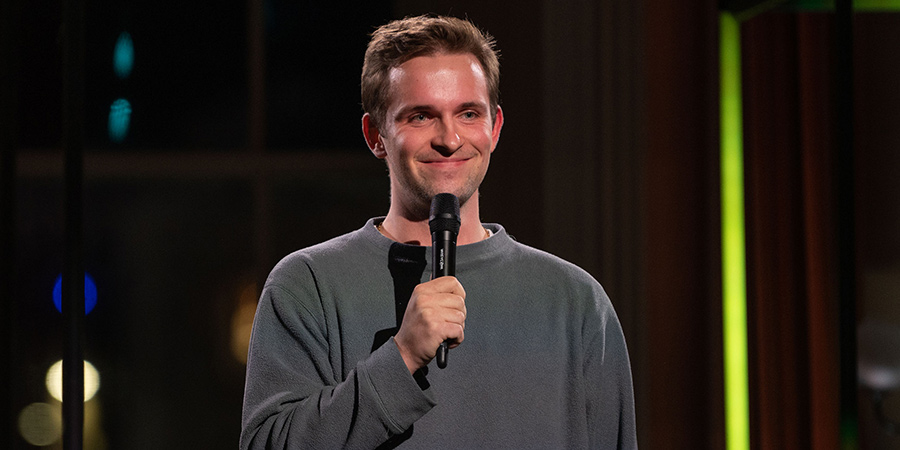
Vittorio Angelone, on paper, is a Wonder Boy who should be right up my street. He works on the edge of what is acceptable and what is unsayable while staying very grounded in who he is. After a banner year in 2022, here he is trying to follow-up his lauded debut with a little bit less in the bank. He even refers to Who Do You Think You Are? I Am! as "his difficult second album" in his brochure blurb which might be a smidge on the money.
There's a lot of making hay over the obscure internet reference his title comes from (maybe a director might have suggested projecting the series of YouTube clips it originates from on his largely unused projector screen as the audience find their seats) and a saggy middle section where he brings up that some comedians have made him a butt of their jokes in private. If the hour has a theme, it is about his identity and mental health, but the buttons Angelone likes to push to gain his hard-hitting laughs don't readily allow for a prolonged shift into "Poor Me" territory. I find it hard to believe even a good-looking alpha male, who hate-supports national football teams and can compose razor sharp takedowns on the pronouns debate, has gotten all the way to his mid-twenties and is suddenly shocked that not everyone is his friend and many can be nasty little bitches on their private WhatsApp groups? It just doesn't chime with the contrarian assassin onstage.
My standards for this sub-genre of comedy are stupidly high so I probably am judging Angelone at an unfair metric. He could easily grow into being one of my favourites from the crop of bright-eyed Irish comedians. His routine about supporting "anyone but England" is prolonged to perfection. Drifting from an everyone-is-going-down take on blind nationalism to a pleasingly thrilling slice of urban storytelling. His best joke writing is concise and playfully wrong foots his audience without ever dumbing down. He is a bit of a star on Instagram, selling tickets and building his audience that way, and there was a genuine buzz in the room from the Gen-Zs around me about seeing him in the flesh. His delivery is laser targeted; his word selection betrays a thoughtful intelligence. In a club 20 he'd take the roof off even his oven of a room.
When Angelone gets away with a particularly brutal line, there's a little self-satisfied smug grin that flashes across his face momentarily. It took me a few times noticing it to place exactly who he kept reminding me of. Then it hit me... Alfie Brown.
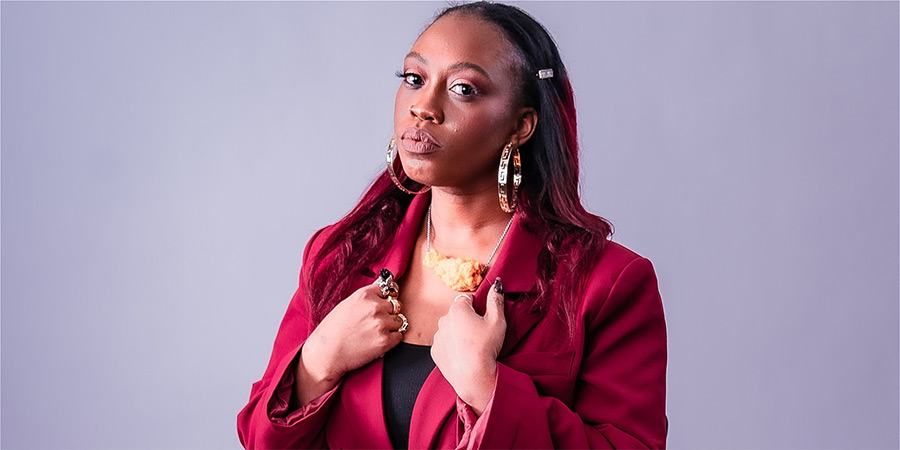
TikTok has been an unavoidable influence the past couple of years. It has gifted us new stars who have come up via a completely different route from the traditional open mic to middle spot to paid gigs trajectory. We've seen loads of staid acts abandon standing inert behind a mic stand and introduce audio visual skits into their otherwise quite uninspired shows. And this year, I'm noticing a lot of dance routines sashay their way in-between the spoken word stuff. Early doors, Sikisa lets us know she ain't just funny, she can move...
Sikisa's second hour Hear Me Out feels more like a debut. The confident and unpretentious comedian spends much of her show letting us know 'who she is and what made her.' And as a delivery system for circuit-ready routines about silent letters, sex parties and how consent can ruin intimacy, she shows her talents in the best light. She talks at a thousand words a minute meaning you get top value in terms of content; are spoilt in the amount of topics she covers. I'm not sure how well all these subjects cohere as a grand overall arc, but it is stacked. Sometimes she can take the longest way around to one simple punchline, but she never misses a laugh when she goes to land it. Her face does some excellent mugging and selling to putt the ball in the hole but, to be honest, her comedy tools are so apparent, this is often just a bonus visual tag.
Sikisa is at the height of her power when being rude and unapologetic. This is a sex positive show from a very full flavoured personality. She wraps things up on a spectacular switcheroo, unlike anything you'll see in the comedy section of the Fringe brochure. There was a part of me, however, that wished I could have caught her first themed hour about her love of superheroes that she alludes to here. Sounds right up my street.
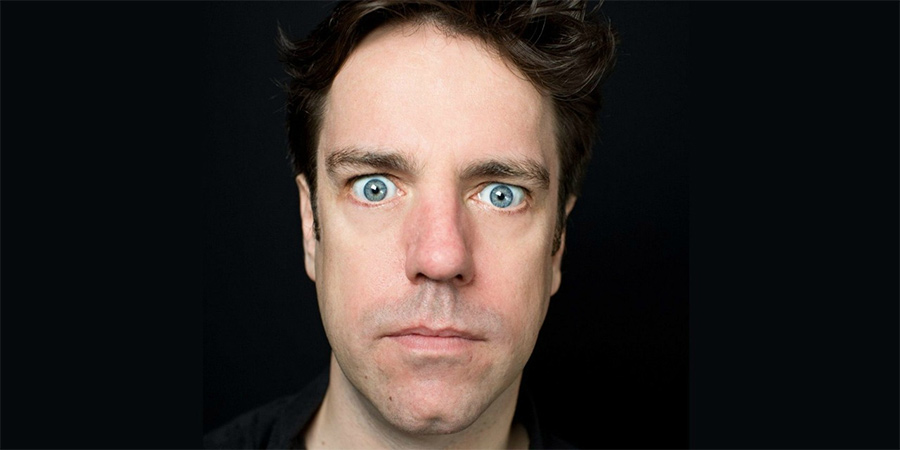
A sequel show to your debut hour can be a test of the true mettle of any comedian. With three or five or even ten years of honed material to fall back on when assembling your first fringe show it can be an unenviable, almost impossible task to then start working up a whole fresh 60 minutes with little less than 11 months to play with afterwards. A newer act will want to keep the momentum going but just have a lot less ammo to survive a second tour of duty. Nick Doody has been in the Edinburgh shit for so long he mockingly titles his latest festival offering The Difficult Twelfth Album. Yet there's no inertia or filler in this veteran's veteran Free Fringe powerhouse.
It is, at its heart, a show about writing and performing comedy. He starts with an anecdote of watching Bruce Springsteen live in concert. He deftly leaps over the hurdle of material about Covid already feeling old hat. And he introduces us to Mavis: his sweet, elderly scatty mother-in-law and her desire to be a creative influence on at least one of his routines. An unbeholden acolyte of Bill Hicks, he does explore where the line is with cancel culture (I'm not sure his logic fully squares the circle) and his approach to non-binary people linguistically reaches a soft, sweet chuckle. The Difficult Twelfth Album can seem a bit discordant at times but in Doody we trust. He takes all the disparate strands of expert funny and twirls them into a magnificent coup-de-grace. As I said about Frank Skinner earlier in the month, there is a rare buzz about seeing a master craftsman at work. Nick Doody remains the artisan of man-and-mic stand-up. A hot bag of chips from the fish shop on a cold night. A dirty limerick. Watching Nick Doody ply his hilarious trade. There are certain pure indulgences in life that are unmatchable.
For more from the Scottish comedy scene, subscribe to Bobby's Edinburgh Laughter Bulletin updates via SubStack.
Help British comedy by becoming a BCG Supporter. Donate and join us in preserving, amplifying and investing in comedy of all forms, from the grass roots up. Advertising doesn't cover our costs, so every single donation matters and is put to good use. Thank you.
Love comedy? Find out more
